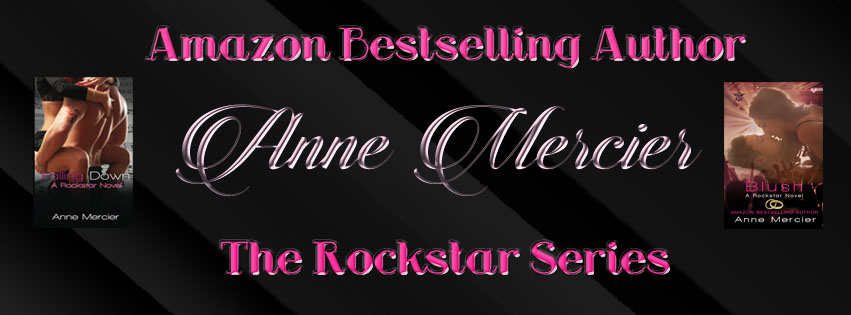My husband posted this comic a few weeks ago with the caption, “Why my wife could never be a homicide detective.” I’m pretty sure the grammar problems would be the least of my concerns in that profession.

I will never be a detective.
They say those who can’t play, coach. To me, the same holds true for writing. Those who can’t write, edit.
My husband posted this comic a few weeks ago with the caption, “Why my wife could never be a homicide detective.” I’m pretty sure the grammar problems would be the least of my concerns in that profession.

People often confuse the words accept and except. Regardless of how similar they sound, their meanings couldn’t be more different.
To accept is a verb with several meanings: It can mean to hold something as true or right, to receive something willingly or to answer yes (oftentimes regarding invitations).
The word except is most commonly a preposition but it can also be used as a conjunction or a verb. As a preposition it means other than, apart from, not including, or excluding. The conjunction has several meanings, including only, for anything but, or unless. Very rarely it can be used as a verb meaning to exclude.
A fast and easy way to remember the difference would be Except = Exclude. The first two letters of except will remind you that it means exclude. *Thanks to Grammar-Monster.com for this “Hot Tip”.
Happy Mother’s Day to all the wonderful women out there that inspire and enrich our lives.
To my own mother, I love you and I’m so glad I can call you my best friend. I only hope I have inherited even a few of the wonderful qualities that make you the best mom ever. And thank you for instilling in me a love for the written word.
 an
an
Here’s a fun one my husband (TheComputerBoy) posted earlier today. It fits perfectly with those nasty homophones that cause problems for so many of us.

Sometimes, a picture is worth a thousand words. I still look at this one more often than not.
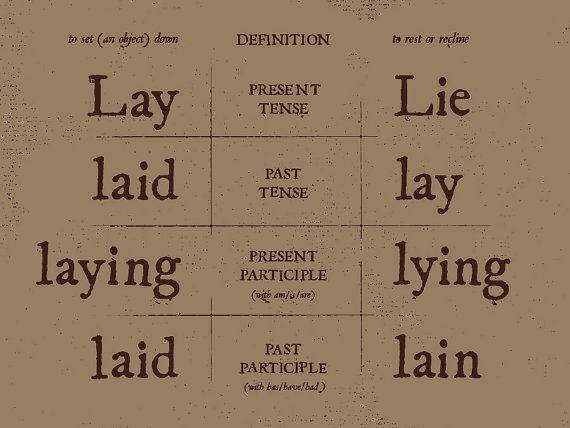
Today we have one of those pairs that are often confused. It makes my teeth clench every time I see them used improperly.
Clinch is to fix or secure (as a nail or bolt) by bending down or flattening the end that protrudes. This definition gave rise to the now more common use of clinch—to settle definitely and conclusively. It’s now a very common sports term when a team or person secures a title or victory.
Clench means to close tightly, or to grasp or grip tightly. It’s also a noun referring to a tight grip or grasp.
This is also a great article comparing the two: http://depressioncookies.blogspot.com/2015/01/clench-vs-clinch-grammar-writing-tips.html
This was sent to me by my husband. There’s more than one reason why this is so funny to me.
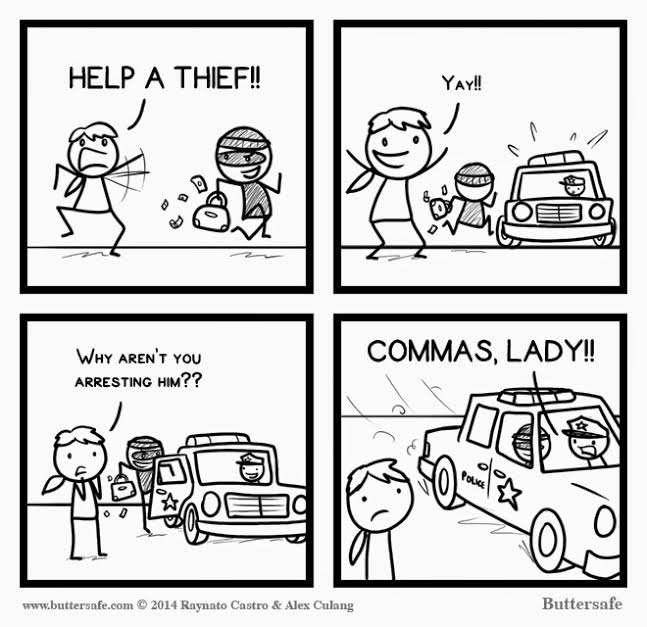
My husband posted this on his Google+ page and said he can relate. I’m not sure if that’s funny or not.
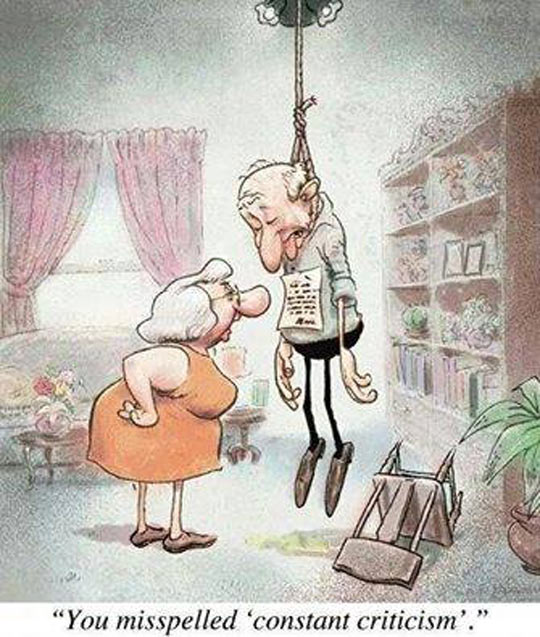
We just came back from a short road trip and finding a new Wi-Fi network would have been much more entertaining if we’d had these to choose from.
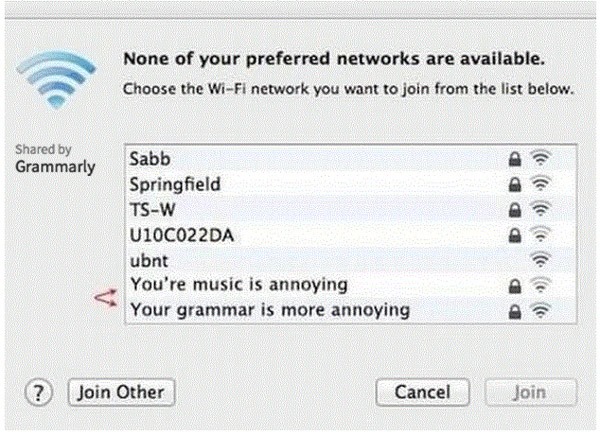
I see this common mistake often. Here’s a little bit of help to clear things up.
Sense is a verb meaning “feel” or a noun meaning “intelligence”. It can often refer to the five senses or the different forms of perception, reasoning, and understanding.
Since is most commonly an adverb often referencing time but can also be used as a preposition or as a conjunction. It is used to express something that occurred previously but whose effects continue to the present.
A few weeks ago as I was writing a Tuesday Tip post, my 9-year-old daughter asked if I had discussed strong words vs. weak words. I requested she give me an example and she told me she would write some down for me. Apparently there is a poster in her classroom that has examples of stronger words to use when writing. She came home from school the next day with two pages full of word substitutions. Today’s Tuesday Tip is courtesy of my daughter and she hopes you all are able to fill your books with stronger words. (She also requested you overlook any spelling errors and messy handwriting.)
And if you need a list that’s a little bit more “professional”, here is a wide range of emotions, just in case.
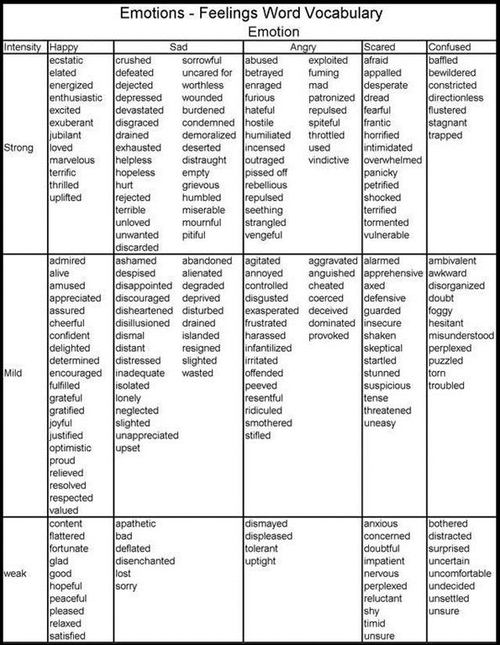
I’ve seen this before but thought it was worth posting. What do you think? Do any of these tips sound legit? Will any of them help you?
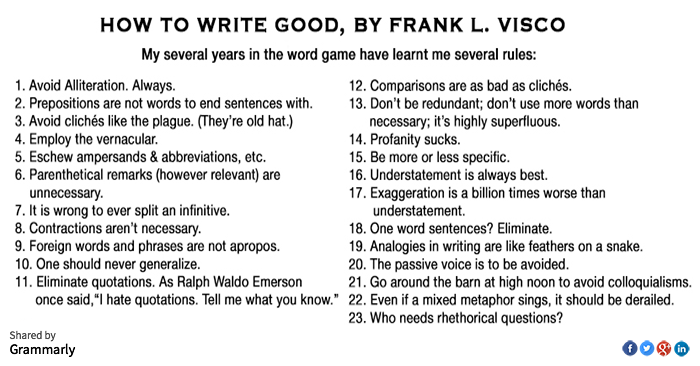
My 9-year-old daughter just finished reading the Harry Potter series. She wasn’t allowed to see any of the movies until she read the books. It warmed my heart to know that I wasn’t the only one that mispronounced Hermione Granger’s name throughout the entire series. What words have you mispronounced until hearing them aloud?
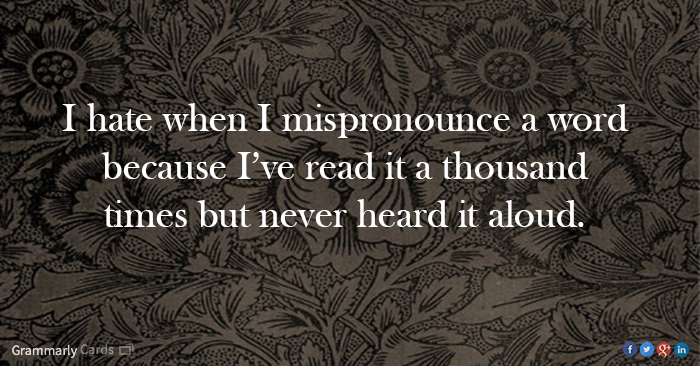
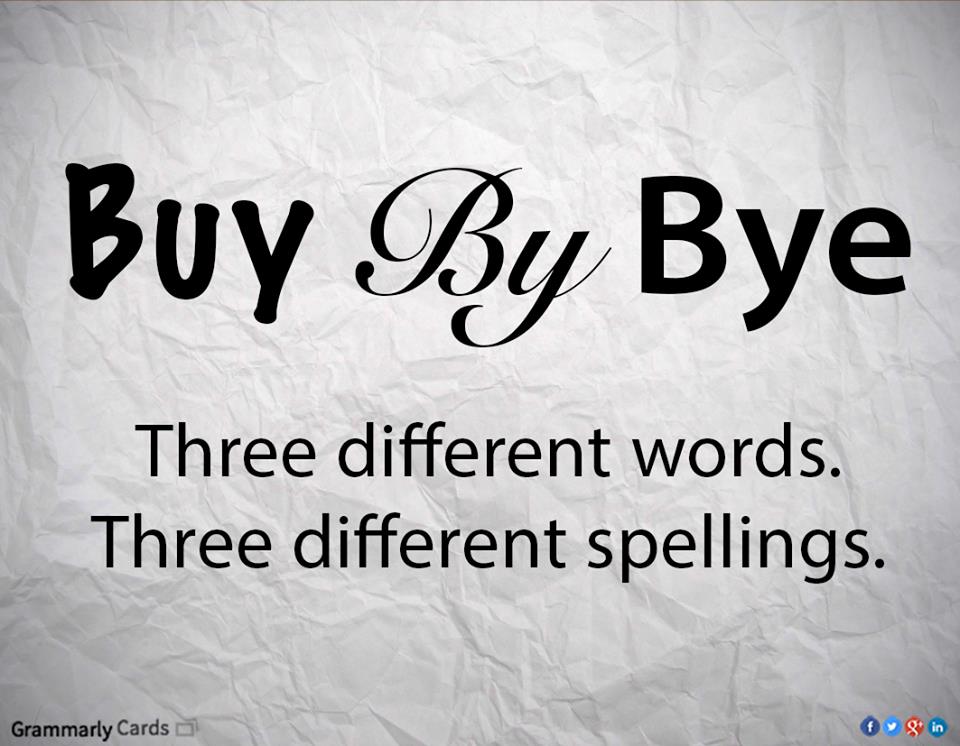
Buy is a verb that means to purchase.
By is a preposition that means near, beside or through.
Bye is a greeting of departure.
Now be honest, you’re singing that *NSYNC song, aren’t you?
It doesn’t matter how often we’ve been reminded of the differences in these words. They are still misused quite a bit. If you happen to be one of those people who confuse these words, hopefully this guide will help.
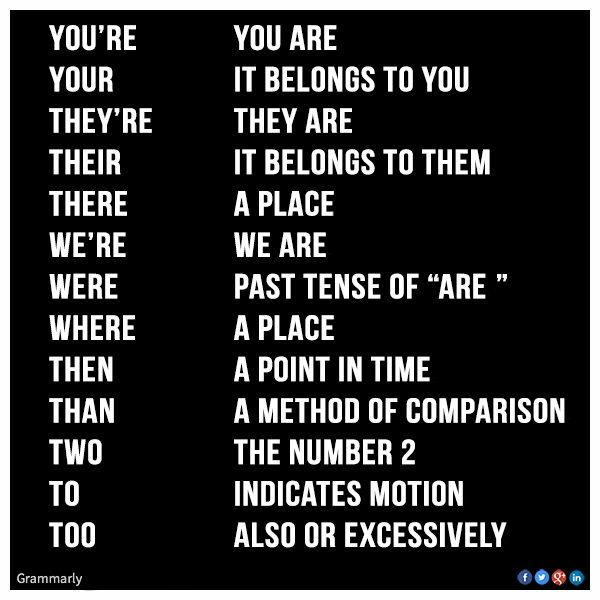
With my first book, I published without having an editor and it showed. Then Nicole contacted me. She’d read my book and offered her proofreading services. After she went through the book and I saw the number of errors I as well as my beta readers missed, I was so grateful that she walked into my life. With my second book, Nicole wasn’t just a proofreader, she was my content editor. She pointed out the flaws, plot holes, mistakes, and she even included what she thought was truly great about the book. She’s professional, she’s fun, and she’s a total sweetheart. I’m not sure how I got so lucky as to get an amazing editor like Nicole, but I’m so thankful. I am truly blessed to have found an editor who knows her “stuff” right out of the gate. Nicole Bailey is the editor you want if you want your book to be the best it can be. Send her an email… you’ll, no doubt, be as impressed as I am.

